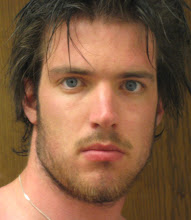Rant!
University of North Carolina at AshevillePHIL309 Applied Ethics – Medical Ethics
Daniel Larsson
04/16/2008
Response Paper 6
spacer“Genetic screening, testing, counseling, and therapy promise to transform medicine in this century in the same dramatic way that antibiotics transformed medicine in the previous century”. (HC 207) Rosemarie Tong continues by, very rightly, point out that this revolutionary transformation will not be a universal answer to all genetic-related questions. In the company of any medical discovery comes a set of moral questions of how to use this medical break-through.
spacerYou can see this from two foundationally different stand points. The first view is that we as humans are but a product of a long chain of development, and what we now have learnt to do is merely what nature has done to us as a human race over the course of millions and millions of years. Nature has though natural selection “cherry-picked” the desirable features and perfected us to what we have finally become. The reason that we now can do these fantastic things is purely a result of this perfection. From this perspective, there cannot be anything wrong in exercising our full potential as humans to secure a continued enhancement of the human race. Diseases have been nature’s way to sort out the weaker links in the chain by having them die before they could procreate. Since we are all just a product of nature it is simply natural that we have finally become smart enough to team up with the evolutionistic forces and continue nature’s job. It’s like the ancient Spartans who killed all deformed newborns to create the perfect army; only we have found a way to bypass the nine months of pregnancy.
spacerThe other way of looking at the inherent possibilities of what we have discovered is yet another way where we use our highly developed brains and our technical experience to shelter and value life. The findings can help us understand the bigger picture of how our bodies work, to see the intricate logic buried in the genes, figuring out the little interactions that are essential for our bodies to function as well as the reasons for various deviations. When science is used this way it can help us to find a way to prevent genetic diseases rather than just prenatally remove the outbreaks. This seems to me as a more responsible path to take.
spacerIt’s easy to see how the first way of thinking is more popular, the latter of the two courses will not have as much of an immediate impact on the population; children will still be born carrying various genetic disorders that eventually will break out, if not during the life of that particular person but in the life of generations to come. When the outbreak finally comes it will most certainly cause economical as well as emotional damage but we are heading down a seriously slippery slope when we try to draw the line of what features are allowed to be born into this world and which ones we decide to reject.
spacerPhilosopher Laura Purdy is arguing in line with my first view of things; “The thought that I might bring into life a child with serious physical or mental problems when I could, by doing something different, bring forth one without them, is utterly incomprehensible to me”. (HC 194) The only incomprehensible thing here is how somebody can have such disrespect for life. Such clear expression of ableism; who is to say that a child with severe physical problem would be lesser than a “normal” child? A rejected child is not coming back. The next one, may it be of perfect physical and/or mental shape will not be “the same child in a better packaging”.
spacerMedicine should be a helpdesk, not a mail-order. By that I mean that we have been granted these technological wonders (that should be hailed) as a protection of what is most important to us; life itself. Current norms of how we ought to look and function has pushed us in a direction where we would rather use modern medicine as a means of perfection according to standards already in place.


0 Kommentarer:
Skicka en kommentar
<< Hem